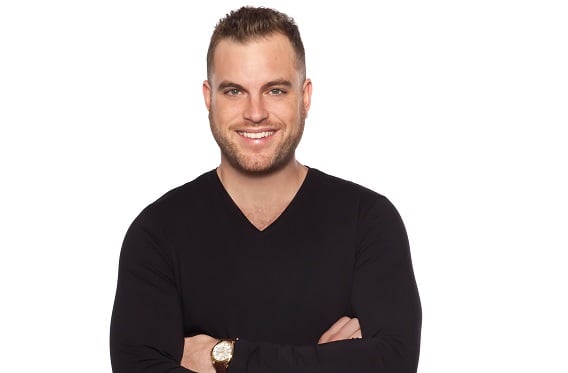MBN talks with a rising star from Dartmouth, Nova Scotia

One of the Nova Scotia mortgage sector’s freshest faces, Alex Lavender brings with him a solid foundation in the restaurant industry, which he leverages to provide top-tier customer experience for his growing client base. In his two years so far as a mortgage broker, Lavender has provided a special focus on millennials and first-time buyers.
What attracted you to the industry?
I grew up with a strong entrepreneurial background through our family restaurant, and I wanted to pursue a career that was very similar to that in terms of getting my clients exactly what they need. I eventually pursued a degree in Finance, and the combination of this with a long-time passion for problem-solving led me to mortgage brokerage. Coming from the hospitality industry, it was just a natural fit, helping people succeed in their homeownership dreams.
Based on your transactions, what are the greatest challenges that your clients tend to face?
I think that the biggest problem is that everyone has a unique situation. It’s impossible to find a box in which to fit all, or even most, of my clients, as they have different circumstances and backgrounds (such as income, credit status, etc.). For cases involving lack of income or bad credit, you have to use your problem-solving skills to get around that or mitigate it. I also tend to get a lot of business from those who have been declined by the banks.
So far, what have been the benefits of working with a mortgage network, as opposed to going at it alone?
There’s so much to learn, especially for me who is relatively new in this industry. You really need to have a strong support network: a group of skilled individuals around you who can help you in the ways that matter the most. Without that, I would’ve been lost, because there is no actual textbook that will teach you to do any of the tasks expected of you.
Most of it will come from trying and doing it yourself—and likely failing, because things change so fast in this industry. Failing and growing, and asking questions to someone who has been through almost all of the situations that you might encounter. For me, that’s the ideal set-up for learning, especially because I’m a kinetic learner who understands things more quickly by doing and interacting.
I also think that—at least out here in Nova Scotia—I bring a new dynamic, because I cater primarily to those in my age range of 25 to 35 years old. The older generation of brokers here might not be able to properly use social media and the other things that my generation is heavily wired into, so having a knowledgeable support network of like-minded individuals becomes even more important.
What attracted you to the industry?
I grew up with a strong entrepreneurial background through our family restaurant, and I wanted to pursue a career that was very similar to that in terms of getting my clients exactly what they need. I eventually pursued a degree in Finance, and the combination of this with a long-time passion for problem-solving led me to mortgage brokerage. Coming from the hospitality industry, it was just a natural fit, helping people succeed in their homeownership dreams.
Based on your transactions, what are the greatest challenges that your clients tend to face?
I think that the biggest problem is that everyone has a unique situation. It’s impossible to find a box in which to fit all, or even most, of my clients, as they have different circumstances and backgrounds (such as income, credit status, etc.). For cases involving lack of income or bad credit, you have to use your problem-solving skills to get around that or mitigate it. I also tend to get a lot of business from those who have been declined by the banks.
So far, what have been the benefits of working with a mortgage network, as opposed to going at it alone?
There’s so much to learn, especially for me who is relatively new in this industry. You really need to have a strong support network: a group of skilled individuals around you who can help you in the ways that matter the most. Without that, I would’ve been lost, because there is no actual textbook that will teach you to do any of the tasks expected of you.
Most of it will come from trying and doing it yourself—and likely failing, because things change so fast in this industry. Failing and growing, and asking questions to someone who has been through almost all of the situations that you might encounter. For me, that’s the ideal set-up for learning, especially because I’m a kinetic learner who understands things more quickly by doing and interacting.
I also think that—at least out here in Nova Scotia—I bring a new dynamic, because I cater primarily to those in my age range of 25 to 35 years old. The older generation of brokers here might not be able to properly use social media and the other things that my generation is heavily wired into, so having a knowledgeable support network of like-minded individuals becomes even more important.



